After the ship struck an iceberg on April 14, 1912, the Titanic's band continued to play in order to calm passengers during the evacuation — and kept going even as the ship sank below the surface of the North Atlantic.
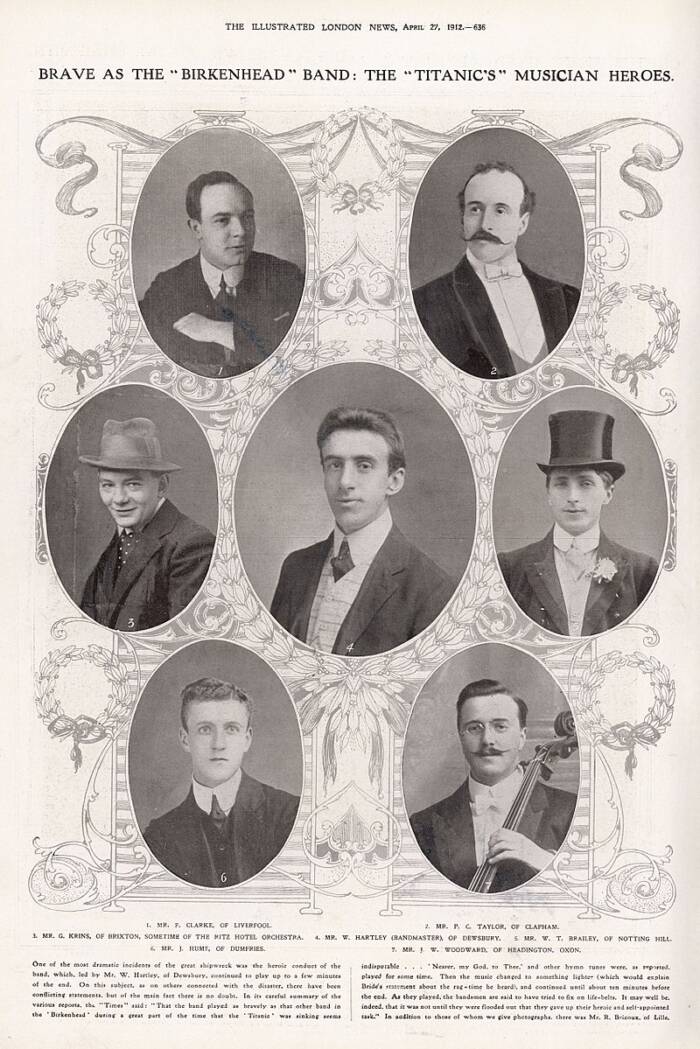
Public Domain A page in the Illustrated London News showing the men of the Titanic band.
Amid the chaos and tragedy of the Titanic sinking on April 15, 1912, many survivors remembered one thing: music. The Titanic band continued to play as the ship went down, offering solace to both those fleeing the ship, and those doomed to sink with it.
Incredibly, the eight men of the Titanic band continued to play until the ship’s final moments. Some witnesses later recalled that their final song was “Nearer, My God, to Thee,” though others claimed that it was “Autumn.” Whatever it was, the final song brought much needed comfort to the Titanic’s passengers and crew.
Immortalized in popular culture, the Titanic band remains a symbol of quiet heroism, selfless devotion, and grace in the face of one of the world’s most devastating maritime disasters.
The Eight Members Of The Titanic Band
On April 10, 1912, eight musicians employed by C.W. and F.N. Black, a Liverpool agency, boarded the RMS Titanic in Southampton, England. The ship, which had made headlines for its size and luxury, was about to embark on its maiden voyage, and the band was tasked with entertaining the passengers during the voyage to New York City.
The musicians were violinist Wallace Hartley, pianist Theodore Ronald Brailey, violinist John Law Hume, bassist John Frederick Preston Clarke, cellist Roger Marie Bricoux, violinist George Alexandre Krins, pianist Percy Cornelius Taylor, and cellist John Wesley Woodward.
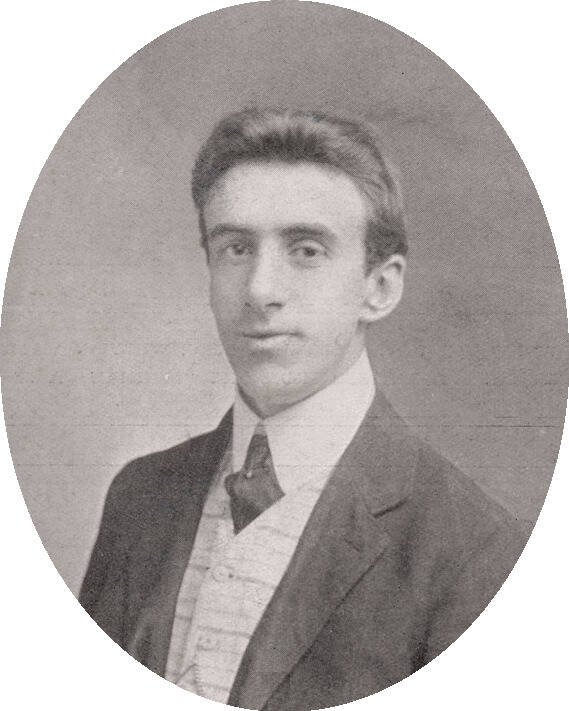
Public DomainWallace Hartley, the Titanic bandleader.
Hartley, a 33-year-old from Colne, Lancashire, was the band’s leader. He was experienced as a ship’s musician, having previously performed for the Cunard line on the RMS Lucania, the RMS Lusitania, and the RMS Mauretania.
Hartley had accepted an offer on the Titanic in order to advance his career. A week before his departure, he spent time with his fiancée in Yorkshire and had high hopes that the job would change his life. In a way, it would.
Brailey, a 24-year-old from Walthamstow, England, had demonstrated a love for music at a young age. He went on to attend music school, play with the Pier Pavilion Orchestra, and perform on ships, including the RMS Carpathia.
Hume, the band’s 21-year-old violinist, was the only member from Scotland. Hume’s father was a music teacher, and Hume had began to build a good reputation as musician as well. When he left for the Titanic, Hume left behind a fiancée, Mary Costin, who was pregnant.
Clarke, the band’s 28-year-old bassist, came from Manchester. He’d worked as an insurance clerk before pursuing music full-time. Prior to his job as a musician on the Titanic, Clarke performed at the Argyle Theatre of Varieties in Birkenhead and with the prestigious Liverpool Philharmonic Band.
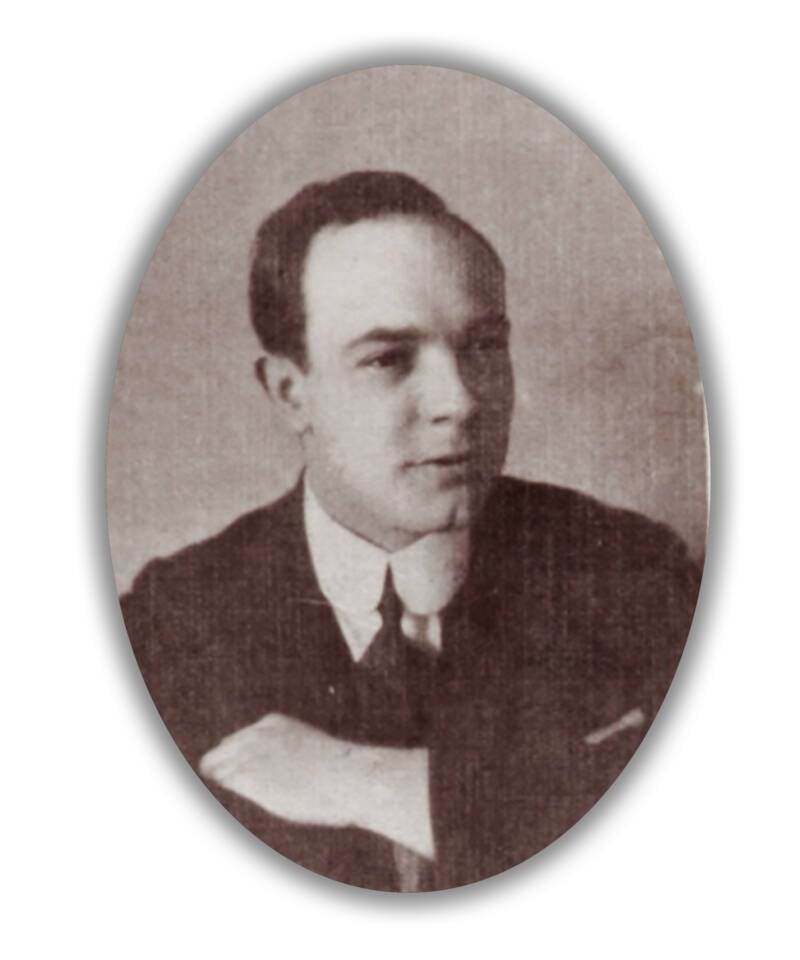
Public DomainJohn Frederick Preston Clarke, the 28-year-old bassist of the Titanic band.
Bricoux, a cellist and the youngest band member, was just 20 years old when he boarded the Titanic. Born in Cosne-Cours-sur-Loire, France, Bricoux had, like Brailey, also previously performed on RMS Carpathia.
Krins, a 23-year-old violinist, was from Spa, Belgium. At just 13 years old, Krins joined the Conservatoire Royal de Musique in Liège, Belgium. Afterward, he considered joining the military or working in his father’s shop, but ultimately decided to continue his music career.
Taylor, 40, was a cellist and the oldest member of the band. Born in London, Taylor worked as a clerk for most of his life before turning to music.
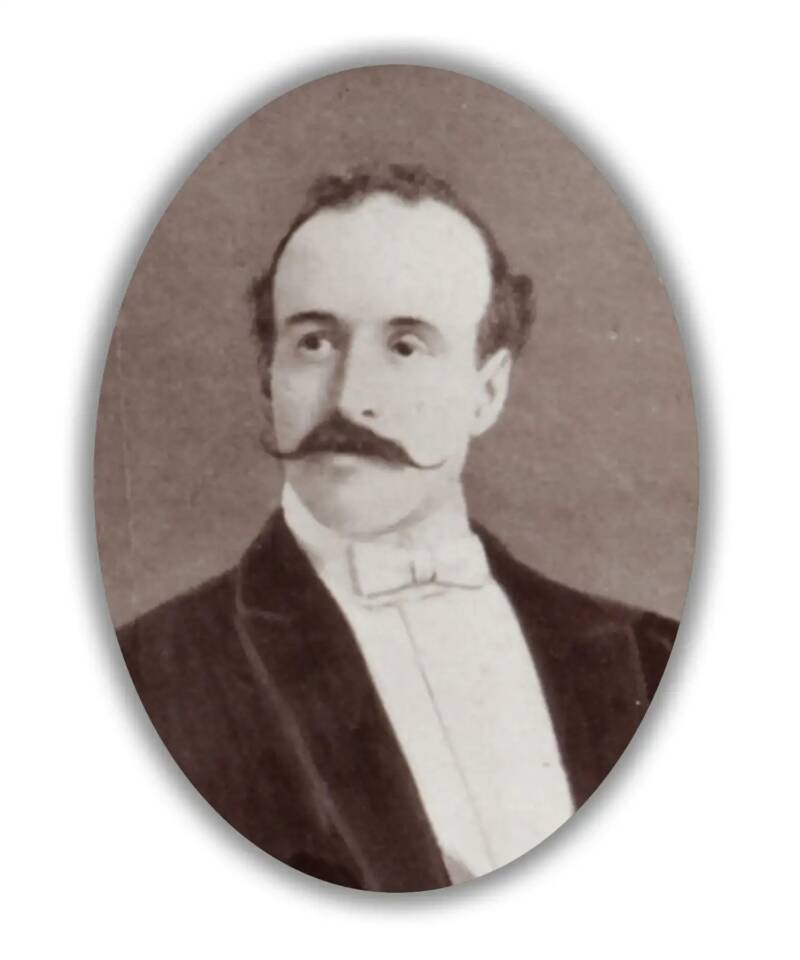
Public DomainPercy Cornelius Taylor, the oldest member of the Titanic band.
Finally, Woodward, 32, joined his fellow bandmates as a cellist. Born in Staffordshire, Woodward had performed for the prestigious Royal Academy of Music and the Eastbourne Municipal Orchestra before accepting jobs onboard various ocean liners. The Titanic was meant to be his last job at sea before settling down in England.
The musicians boarded the Titanic at Southampton on April 10, 1912. They traveled under the same ticket number, 250654.
Within a few days, the Titanic band would perish together as well.
How The Titanic Band Went Down With The Ship
The Titanic band got to work shortly after boarding the doomed ship. Their first full performance day was April 11, 1912, as the ship sailed into Queenstown, Ireland, to pick up more passengers. Before their 10 a.m. performance, Hartley sent a letter to his parents about the voyage so far:
“Just a line to say we have got away all right. It’s [been] a bit of a rush but I am just getting a little settled. This is a fine ship & there ought to be plenty of money on her… We have a fine band and the boys seem very nice – I shall probably arrive home on the Sunday morning. All love, Wallace.”
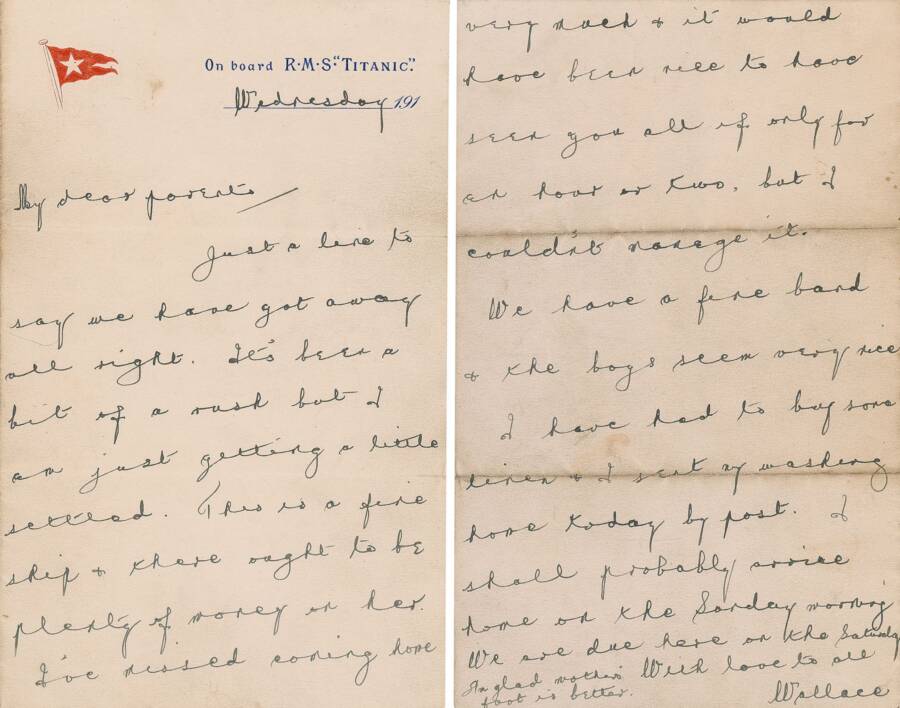
RR AuctionsThe letter Wallace Hartley wrote to his parents from the RMS Titanic on April 10, 1912.
Hartley and the other members of the Titanic band would have been plenty busy in the days that followed. Not only did Hartley work on each day’s setlist, but the band members were also expected to know hundreds of songs by heart. Passengers could request songs, and first class passengers were given a music book with 352 songs to choose from.
“[N]othing on board was more popular than the orchestra,” one passenger recalled. “You could see that by the way everyone refused to leave it. And everyone asked of it some favorite hit.”
But just a few days into their voyage, everything changed. At 11:40 p.m. on April 14, the Titanic struck an iceberg. The captain, Edward Smith, had maintained the ship’s high speeds despite warnings about ice and, soon, the Titanic began to sink.
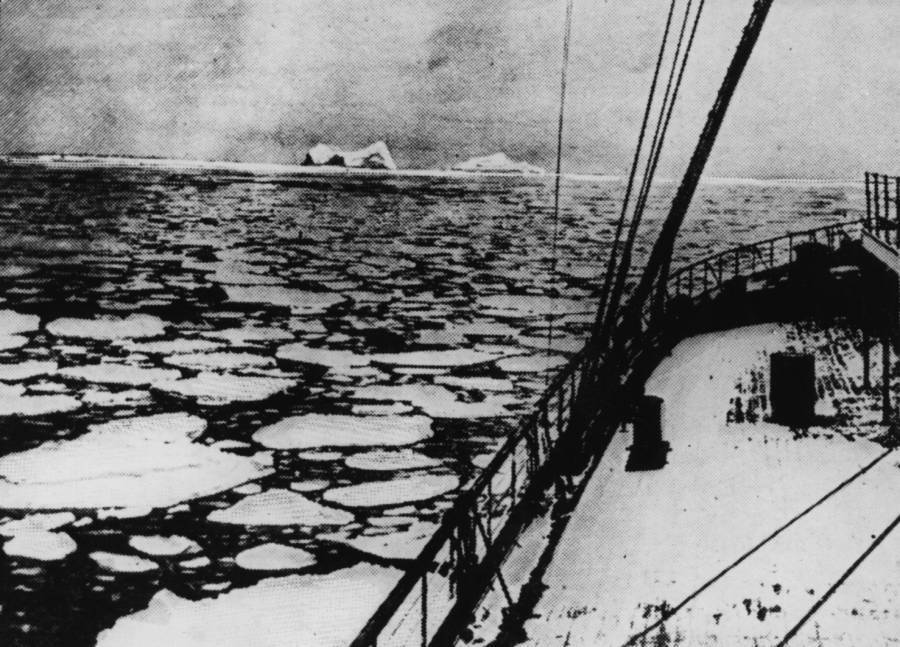
Hulton Archive/Getty ImagesThe icy sea where the Titanic sank, as seen 10 days earlier.
The vessel only had enough lifeboats to accommodate half of the passengers and crew, and while women and children were given priority, it was clear that not everyone would survive. But in the face of this terrible tragedy, the Titanic band made a decision: to play on.
The Final Moments Of The Titanic Band
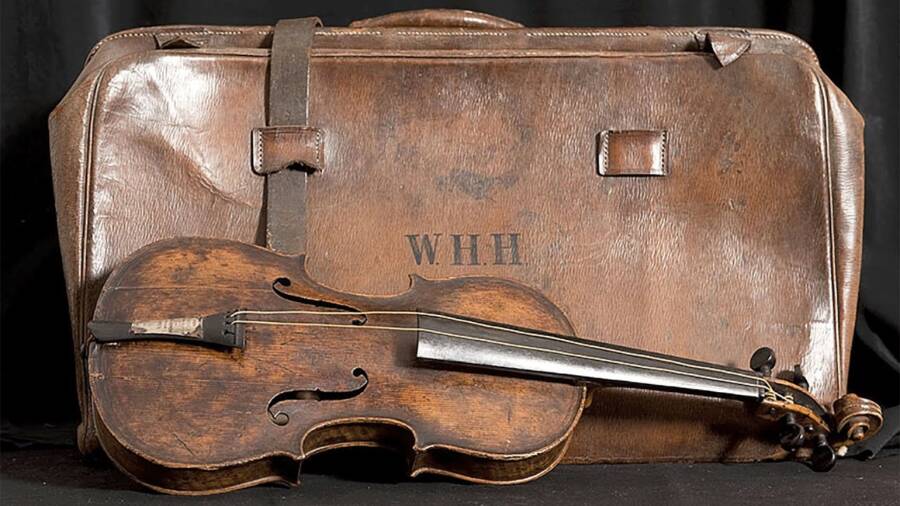
British Titanic Society/YouTubeWallace Hartley’s violin was discovered strapped to his body after the Titanic sank.
In the chaos of the evacuation, many Titanic survivors recounted one stirring detail: the sound of music. Shortly after the ship struck the iceberg, the eight musicians of the Titanic band grabbed their instruments and began to play to keep passengers calm during the evacuation process.
“It was now that the band began to play, and continued while the boats were being lowered,” Archibald Gracie, one of the Titanic’s survivors, later wrote. “We considered this a wise provision tending to allay excitement.”
Even as the Titanic sank, the musicians continued to play. A witness stated that they last saw Hartley clinging to the rails of the Grand Staircase as the ship sank into the water, telling his fellow musicians: “Gentlemen, I bid you farewell,” according to Strings Magazine.
But what song did the Titanic band play in its final moments? There’s been debate over whether the band played ‘Nearer, My God, to Thee,’ or something else, perhaps “Autumn.” One survivor poignantly recalled:
“As the screams in the water multiplied, another sound was heard, strong and clear at first, then fainter in the distance. It was the melody of the hymn ‘Nearer, My God, to Thee,’ played by the string orchestra in the dining saloon. Some of those on the water started to sing the words, but grew silent as they realized that for the men who played, the music was a sacrament soon to be consummated by death. The serene strains of the hymn and the frantic cries of the dying blended in a symphony of sorrow.”
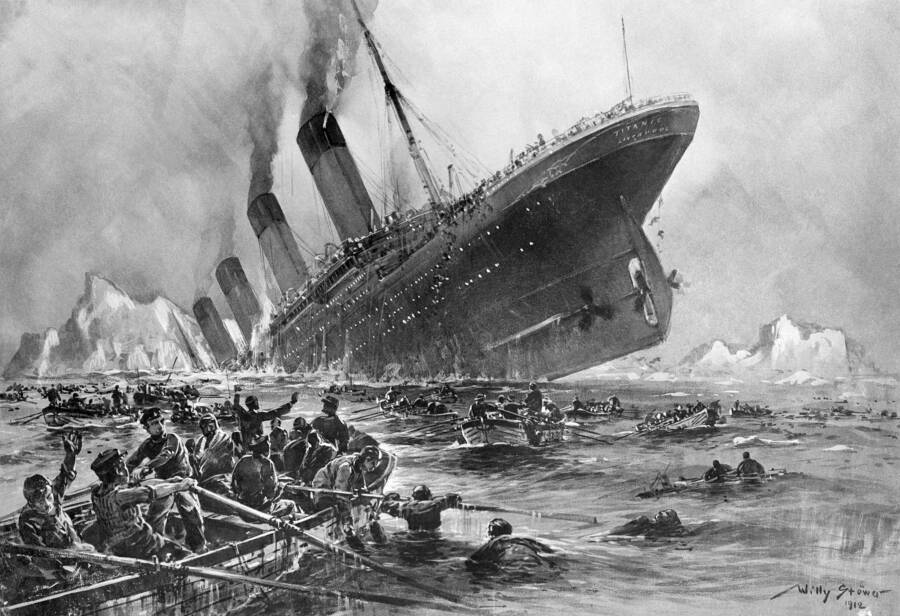
Science History Images/Alamy Stock PhotoA depiction of the Titanic sinking early in the morning on April 15, 1912.
But Gracie wrote: “I did not recognize any of the tunes, but I know they were cheerful and were not hymns. If, as has been reported, ‘Nearer My God to Thee’ was one of the selections, I assuredly should have noticed it and regarded it as a tactless warning of immediate death to us all and one likely to create a panic that our special efforts were directed towards avoiding, and which we accomplished to the fullest extent.”
That said, Wallace Hartley did purportedly tell a friend that if he were ever on a sinking ship, he would play “Nearer, My God, to Thee.” However, the truth of the Titanic band’s final song died alongside them.
In the end, 706 people survived the disaster, while 1,517 people perished. Tragically, it was later revealed that many of the Titanic’s lifeboats were sent out only half full, and had room for an extra 500 people.
The Brave Legacy Of The Ship’s Musicians
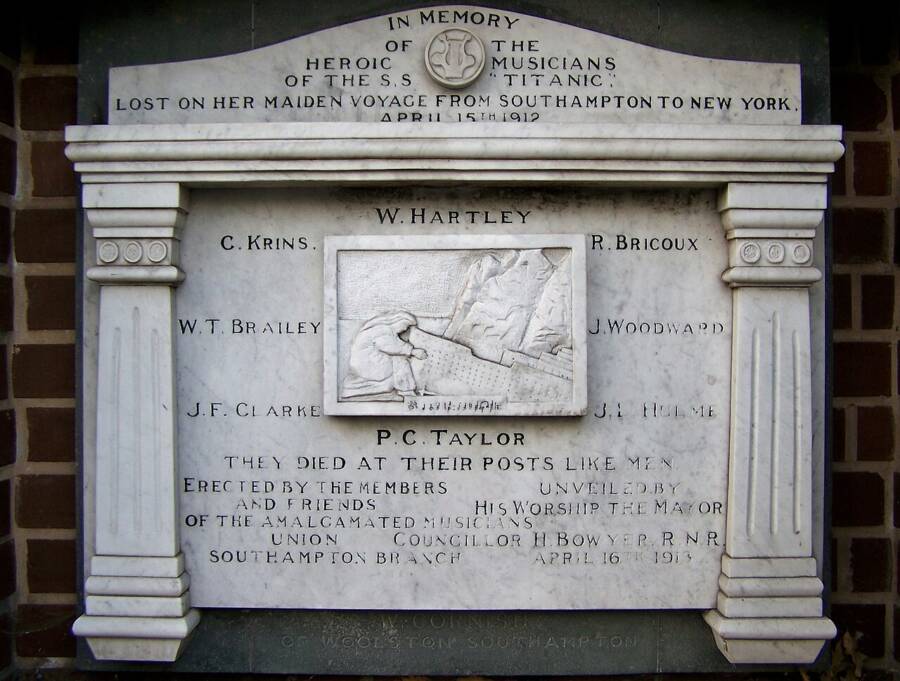
Wikimedia Commons/CC BY-SA 3.0A memorial for the Titanic band in Southampton, England.
Following the disaster, the bodies of Hartley, Clarke, and Hume were later recovered by the CS Mackay-Bennett, though the other five band members’ remains were lost at sea. The Mackay-Bennett also recovered Clarke’s gold watch, pocketbook, memo book, and shillings, and a gold ring marked “J.F.P.C.”, as well as Hartley’s violin — still strapped to his body — and Hume’s cigarette case, watch, and pearl-handled knife.
Hartley was the only member of the band to be transported back home. He was buried in his hometown of Colne, Lancashire, following a highly publicized funeral. Hume and Clarke were both interred at the Fairview Cemetery in Halifax, Nova Scotia — alongside many other Titanic victims.
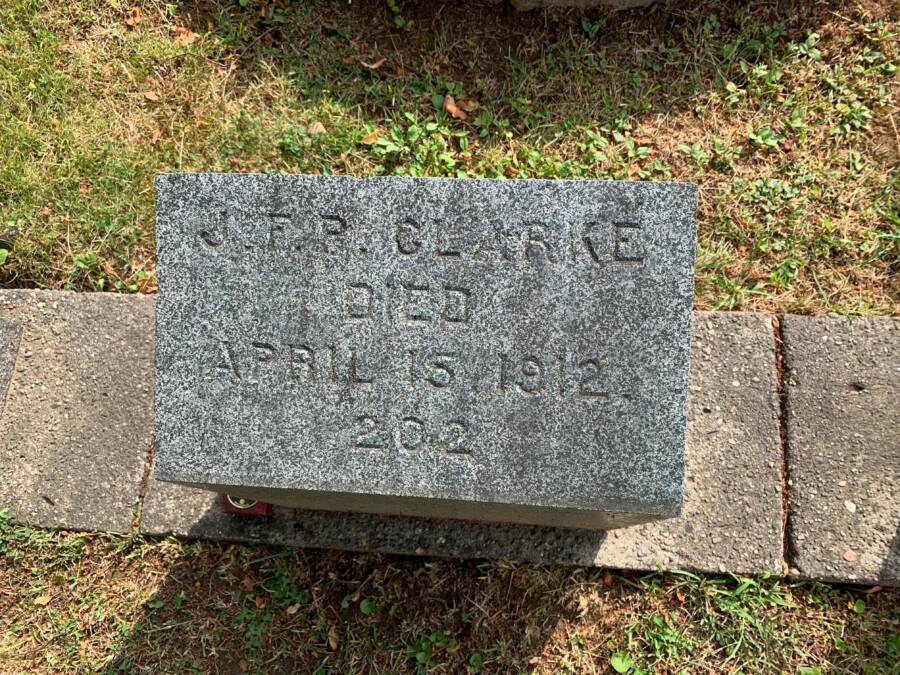
Find A GraveThe grave of John Clarke, the Titanic band’s bassist.
In the years following the disaster, memorial concerts were held in the Titanic band’s honor. Today, several memorial sites dedicated to them have been erected in Southampton, Nova Scotia, and Australia. However, their bravery that night is perhaps most famously captured in a scene from James Cameron’s 1997 film Titanic:
Now, over a century after the disaster, the world still marvels at the bravery of the Titanic band. As Hartley himself noted shortly before the disaster, music has incredible power in times of crisis.
“I have always felt that,” he once remarked, “when men are called to face death suddenly, music is far more effective in cheering them on than all the firearms in creation.”
After reading about the last moments of the Titanic band, dive into some of the wildest Titanic conspiracy theories. Or, read about Charles Joughin, the Titanic baker who possibly survived the sinking by getting drunk.





